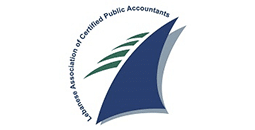Accurate reporting, proactive cash flow management, and contingency planning all play a role.
Many small- and medium-size businesses have been sailing through incredibly turbulent waters for over a year. Small and medium-sized enterprises (SMEs) contribute about 52 per cent of the UAE’s non-oil GDP, according to Ministry of Economy estimates in December 2019. But without significant financial reserves or the flexibility to cut costs, small businesses are vulnerable to systemic shocks. As a result of the massive disruption caused by Covid-19, this vital element of the UAE economy could collapse. But despite the challenges, the current economic uncertainty can be an opportunity for SMEs to leverage their small size with a fast and flexible approach.
As small businesses look ahead to a post-pandemic recovery, their CFOs are responsible for more than just the numbers. We must also serve as valuable business partners who can see the bigger picture, understand the ins and outs of our organizations, and identify the best routes to success.
The following are just a few of the ways small-business CFOs can support their CEOs and cross-functional partners.
Ensure accurate reporting and insightful data
First and foremost, to make informed decisions related to inventory, expenses, hiring, capital investments, and other areas, managers and owners need clear insight into the business’s financial performance. Finance leaders must ensure they are providing accurate, quality reporting in a timely way. A small business I knew received financial reporting more than 60 days after month’s-end. And, because it didn’t systematically close each reporting period, historical numbers invariably changed.
Monitor and manage cash flow
For small businesses, cash is king. It is the company’s lifeblood. Without it, turn out the lights, close the doors, and go home. As such, CFOs need to pay particular attention to cash flow. After more than a year of financial difficulties, recovery for many small businesses will depend on their ability to ensure cash is once again coming in. But finance leaders must go beyond simply monitoring cash flow — they must proactively manage it. For example, finance needs to aggressively ensure customers are paying consistently, fully, and on time. This is not the time to let payments slide.
Develop strategic plans — for growth and setbacks
Looking beyond COVID-19, leadership teams should be revisiting their strategic plans or defining them if not already in place. (Unfortunately, many smaller companies may not have typically prioritized strategic planning.) Having insight into financial performance and forecasting, finance leaders can and should be instrumental in the process.
For example, The PTI (Plastic Technologies Inc.) Group of Companies, the company I am CFO of, historically focused on research and development (R&D) for sustainable packaging innovation, including niche manufacturing initially offered as an extension to PTI’s R&D services. After I arrived, we developed a multi-year plan, including significant investment in new manufacturing equipment based on our strategic assessment that the niche manufacturing side of the business held untapped potential. When the pandemic arrived, we saw a significant uptick in need for our containers consistent with consumer demand for hand sanitizer and other products related to pandemic fears. We were able to confidently implement our strategies more rapidly than planned.
Plan for the short-term
Navigating through short-term challenges and contingency planning are business imperatives for small business recovery. For example, what is your plan for transitioning from remote work? Will your employees go back to the office full-time, or will you permit hybrid work arrangements? Finance leaders should be on top of current regulations, including those governing face mask mandates and social distancing. They should be inquisitive by probing staff about such decisions and related implications.
CFOs should also ensure the leadership team invests time in contingency planning. Though conventional wisdom says we’re exiting the pandemic, there could be lapses that potentially endanger investments being made that are predicated on a quick and consistent economic recovery. As finance leaders, we must keep an eye on trends and possible virus resurgences. In the event of a relapse, we must be prepared to offer opportunities for cutting costs and protecting the business.
Act as a catalyst for sustainability
CFOs can be the catalyst for change around issues related to sustainability, an increasingly important topic for businesses large and small. Finance leaders can help integrate sustainability issues into reporting alongside traditional financial metrics and balance the bottom line with more long-term concerns. Embracing sustainability can lead to concrete financial benefits by marketing the company as sustainable and conscientious of environmental, social, and governance (ESG) issues.
Build and maintain key relationships
Many smaller companies tend to take their bankers, accounting firms, liability insurance brokers, and other such relationships for granted. During the best of times, this complacency is a risk. It is vital to shore up such relationships during uncertain times, whether for cost savings, enhanced benefits, or more robust compliance. CFOs should lead the way in maintaining and building valuable relationships with these partners.
As small and medium-size businesses struggle to recover and grow this year, we, their CFOs, are well-positioned to offer valuable leadership across all these areas, going well beyond merely tracking profits and losses and closing the books. Our value will be in steering our companies through turbulent waters toward brighter, post-pandemic shores, keeping an eye out for trouble on the horizon, and re-imagining the long-term destination.


















